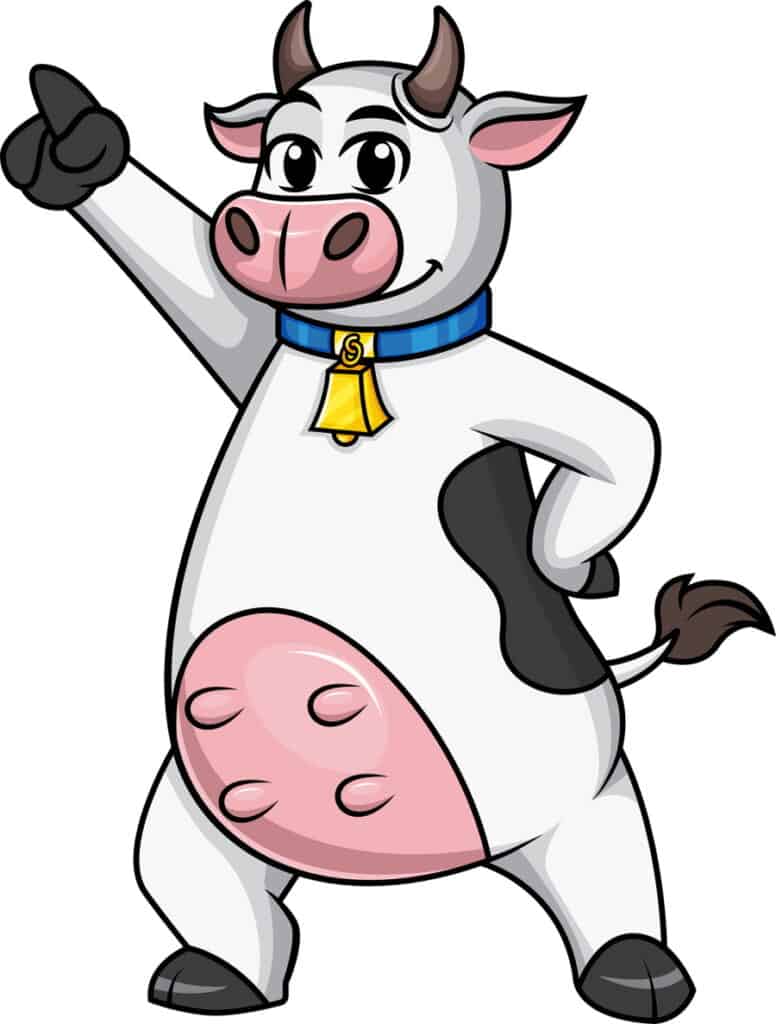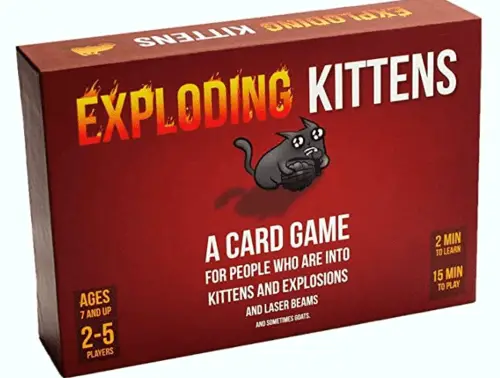Even without much research, it becomes apparent that what one person finds humorous someone else might not. So why is that? Is it a lack of a good sense of humor that makes a person not enjoy a joke or comedy show as much as the next person? Or are comedy and humor subjective?
Comedy and humor are subjective, and that matters when searching for appropriate humor for kids. Culture, background, religion, and even age influence what is considered funny and what products of comedy are produced. Parents and teachers should keep this in mind when selecting comedy options.
We will dive into what people find funny and why. I also look at how different people are effected by humor and how that leads to very different outcomes in different groups of people.

Contents
How Is Humor Subjective?
The idea of something being subjective is that it differs or depends upon each subject or person. So how is humor subjective?
Humor is subjective because it is connected to its producer and audience. Whether or not something is considered humorous depends upon individuals’ perceptions, which is directly tied to their individual backgrounds, culture, and ideals.
This is good news for those who have a Knock Knock joke fall flat. It may not be their fault. But of course, it could always just be a bad joke. That aside, let’s consider how humor is subjective by looking at some factors that influence it.
Subjectivity of Cultural Humor
Though there are some parts of humor considered universal, humor can also be culture-specific. How is humor related to culture and background?
Humor is subjective to culture and background, meaning what people find funny is often informed by a common geography and shared history and customs. It’s important to recognize that these cultural features impact humor and comedy.
Probably one of the best ways to illustrate cultural subjectivity is through a comparison of British and American humor. This is especially poignant given that British and Americans share common language and a strong historical connection.
| British Comedy | American Comedy |
| Dry | Loud |
| Subtle | Exaggerated |
| Self-Deprecating | Self-Enhancing |
| Crude | Rude |
| Reflective | Observational |
| Intelligent | Immature |
| Sarcastic | Optimistic |
| Satirical | Absurd/Slapstick |
And this is particularly easy to show via a TV sitcom called The Office, which was first released by BBC in 2003, about the mundane, day to day workings of the employees of a struggling paper company. It’s wry, embarrassing, sarcastic humor is a classic example of British comedy (The British Office is available for free with an Amazon Prime Membership.).
The Office was so well-received it spurred a US version (and later even a German version), released in 2005, by the same title which went on to run 8 seasons and in syndication beyond that.
However, the versions, despite the same title and similar plot and characters, are very different in their approach to humor, so much so that it’s rare to find fans who like both equally. It’s more common to find a strong preference for one over the other based upon, you guessed it, subjectivity.
Most agree that the British Office is darker, meaner, and even a bit uglier than the US counterpart whose main star is often described as ‘a lovable idiot’.
Even though Michael Scott of the US Office is racist, sexist, and shallow, somehow he’s also played as redeemable with a heart-of-gold (that American optimistic humor clearly in play). This is in extreme contrast to the irreparable David Brent, the British Office branch manager.
To sum it up, culture plays a very integral part in what’s considered funny because it provides the context for the joke. Where people live, from shopping to the work place to home life and what people typically do for fun and entertainment in particular areas of the world, all come together to influence humor and comedy.
This isn’t to say that people outside of a region can’t enjoy or appreciate a particular type of humor. But to not admit cultural impact on humor is to ignore a strong and obvious regional influence.
For related articles on humor, I recommend these from our site:
- 6 Things That Determine Sense of Humor
- Why Does My Child Laugh When Someone Gets Hurt?
- Learn How To Make An Autistic Child Laugh (3 Ways Explained)
Subjective Comedy By Ages
Besides culture, age also affects humor. What toddlers find funny is going to be different from teens and late adults. How does age impact humor, then?
Comedy and humor are also subjective by age. Though some limited areas of comedy are cross-generational, what grandparents find humorous is different from parents and grandchildren. Each generation is impacted by the politics and social mores of its time, influencing humor as well.
One study was able to link cognitive ability and appreciation of humor in both young children and older adults, concluding that for a joke to be funny, one has to also have the ability to comprehend its meaning too, regardless of age.
So it only makes sense that age is connected to what one finds funny. Let’s look closer at humor as it relates to age for young children, teens, and adults, as well as how generational mores and politics affect humor.
Humor for Children

Even though a toddler and his parent can both laugh at the same episode of SpongeBob Squarepants, there’s a difference in what they actually find funny. This is because humor is age subjective, too. What is humorous for children?
Children’s humor is subject to their immaturity, making it much more concrete and overt. For instance, children laugh at slapstick like bumping heads or slipping on a banana peel; over-the-top silly humor like pranks or making faces; and gross stuff like slime or fake bug guts.
Keep in mind that children’s humor is also subject to their need for feeling safe. If at any time, their safety is questionable, then their ability to find humor in a situation or activity is diminished.
Examples of What Children Find Funny:
- Silly, nonsense words
- Someone falling down
- Underwear on the head (or just saying, ‘underwear’)
- Gross stuff like boogers, vomit, or squished bugs (as long as fear isn’t connected)
- Being chased (again, as long as safety isn’t threatened)
- Being tickled
- Pranks
- Making funny faces
The younger the child, the more overt and clear the attempts at humor need to be. As children grow, their cognitive ability increases for what they can find humorous, adding puns, double meanings, and more slightly subtle humor possible.
When trying to find jokes kids think funny, it’s best to keep it simple; include repetition, rhymes, or patterns; and use kid-friendly topics such as animals, cartoon characters, or games/sports. Examples of kid-friendly jokes include Knock Knock jokes; dog and cat jokes; or jokes about ice cream, bicycles, or swimming.
Knock, knock.
Who’s there?
Ben.
Ben who?
Ben waiting for Christmas all year!
Knock Knock jokes have a pattern that kids like and are very popular with the elementary-aged group. Although children don’t always understand the punchline, they catch on to the ‘knock knock, who’s there’ parts quickly and that makes it enjoyable for them.
If you are looking for jokes for kids, my husband has a great joke/coloring book you will love. You can get this over 100 page book sent directly to you from Amazon.
Unfortunately, it’s also common for children to find comedy in laughing at each other. This is only natural and parents or teachers shouldn’t be overly concerned about it. Not that it’s to be ignored either. Instead use these moments to teach appropriate responses in regards to humor.
empathy: the action of understanding…being sensitive to…the feelings…and experience of another
Merriam-Webster
As a teacher, I’ve found it useful to take advantage of these times to directly teach empathy, which most kids are able to grasp when it’s presented to them clearly. A slogan like, “Laugh with, rather than at” is helpful to use.
Teen Subjective Comedy

Like with younger children, teen humor is subjective. Teens have a different sense of what is considered funny and can be quite vocal about it. So how is teen humor different than humor for other age groups?
Though teens still find slapstick and overt comedy funny, teen humor often turns more negative. For instance, most teens like dark humor involving unexpected or twisted punchlines. Teens also enjoy aggressive humor that insults or put-downs others and self-defeating humor, which targets themselves.
What is it exactly that makes dark, aggressive, or shock humor appealing to teens? Well, history (and our own personal experiences) tell us that teens are prone to rebellion and those humor-styles align with that more so than dry, subtle, observational humor.
The teenage years are a time to assert independence and move away from parental rules, with adulthood in the horizon. As well, teens are fraught with hormonal changes, causing angst and darker mood swings. These are natural causes, then, for teens to move toward ‘the dark side’ of insulting, negative type of comedy.
Note: Teens are highly sensitive by nature. Even if your teen seems to be using comedy to bully, it’s possible he or she is unaware. With a calm tone, discuss concerns you have about rude or obnoxious humor your teen may be exhibiting or ascribing to and make sure he or she understands the potential harm, in lieu of full-on accusations.
Suggestions for Parents and Teachers Regarding Teen Humor:
- Don’t fight it. If you ban this humor altogether, teens will hold onto it even more.
- Keep it in its place. Explain to teens when and where it’s appropriate to use, and not.
- Talk to your teens about what they like most. Even if you don’t find it funny, you’ll make points with your teen just by your willingness to discuss it.
- Be open to some of it, especially milder forms. Start with some short YouTube clips, for example, rather than whole comedy sets or shows.
- Realize it’s a passing phase. Eventually, your teen will move on to Seinfeld reruns, too.
Adult Humor Subjectivity Is Generational

Adult humor is also subjective, and even changes throughout life from early adults to late adulthood. What should you know about the subjectivity of adult humor and comedy?
Like with children and teens, adults are apt to laugh at some slapstick and overt gags, but adult comedy is more often satirical and dry. Older adults are more likely to appreciate humor that is observational and philosophical while younger adults like self-enhancing and self-deprecating humor.
Let’s look, then, at what adults consider funny and how that changes as adults move toward late life.
Young Adult Humor and Comedy is Self-Enhancing
Young adults often like comedy that is self-enhancing. Self-enhancing humor is comedy that pokes fun at oneself but in a good-natured way. It’s a way for adults to recognize faults and mistakes, but at the same time, not take accountability too strongly. Self-enhancing humor is almost like an excuse for young adults.
One 2013 study of Chinese university students found a positive relationship between perceptions of happiness and preference for “affiliative and self-enhancing humor.” Affiliative humor is described as humor that everyone can relate to whereas self-enhancing humor is friendly humor at your own expense (Source: Psychology Today)
Self-enhancing humor, for instance, is making fun of yourself for doing something silly that you should’ve been able to avoid. For example, after inadvertently swapping the salt and sugar when making a cake, you excuse yourself by saying, “I’m such a dummy!” But really, you don’t think you’re a dummy.
Older Adult Humor and Comedy is Dry, Reflective, and Philosophical
Older adults generally move away from self-enhancing humor, perhaps no longer feeling the need to prop oneself up for mistakes or minor failures. Rather, older adults find humor in more reflective, philosophical musings especially about ‘life’ as they live it now.
For instance, older adults like shows that poke fun about their current circumstances: empty nests, being widows/widower, ill health; and problems with the ‘younger generation.’
Popular Comedies for Older Adults:
- The Golden Girls
- Hot in Cleveland
- Frasier
- Everybody Loves Raymond
- The King of Queens
It should also come as no surprise that the common feature of all of these TV comedies popular with older adults is that they star older adults.
Generational Subjective Humor
Each generation becomes known for its particular causes and beliefs. These ‘feelings’ inform humor and comedy, too. For example, Baby Boomers, or those born between 1946-1964, are known for working hard, reserved feelings, avoiding change, and family values. So humor for them often reflects on those ideals.
The generation after boomers is called Generation X (or shortened, Gen X); Gen X grew up during MTV, economic prosperity, and two-parent working families, making them known for being overlooked latchkey kids, excess, and mediocrity. Humor for Gen X often pokes fun at being forgotten, lost identity, and student loan debt.
Then, there are Millennials, those like my oldest son, who were born from 1981 to mid-90s. The Millennial generation saw the rise of Smart Phones, internet, social media, and other major advancements in technology.
They also lived through widening poverty gaps and being projected to not do as well as their parents. Millennials grew up micro-managed and despite ‘everyone wins a trophy’ attitude, dealt with more depression, suicide, and drug abuse than previous generations, too. I guess it seems reasonable that their humor is prone to bitter punchlines and riffs on the older generations.
Suffice it to say, humor is definitely subjective to the time period in which we ‘grew up.’
Why It’s Important to Recognize Subjective Humor
Why is it important to recognize that humor and comedy are subjective?
It’s important for parents and teachers to recognize subjective humor because its variable nature impacts appropriateness for children. While some humor and comedy are universal and appeal to all age groups, it’s clear that aggressive humor and dark humor are not meant for children.
When parents or teachers are selecting humor for children, they’ll want to be confident it is not just humor cognitively appropriate for kids, but also that it is age-appropriate based on content.
Humor may also be connected to messages or politicization, too. Thus, parents and teachers need to be aware of any subjective messages or implications attached. As a teacher, I especially, paid attention to hidden (or not so hidden) communication within humor I used for instructional purposes, so as to not overstep boundaries as an educator.
It’s also important to recognize examples of universal humor, which is typically ‘safe’ for use with all age-groups and demographics. Universal humor is not regional or connected to specific groups; it is generally positive and silly.
Examples of Universal Humor:
- Funny things animals do
- Pie in the face
- Getting squirted with water
- Laughing babies
- People dancing silly
- Falling down (after assuring not hurt)
- Absurdly unusual events (like riding a bike in a dinosaur costume)
Subjective Comedy and Humor Takeaway
It’s great to laugh and finding ways to entertain others is fun for you, as well as them. However, it’s important to recognize that not all humor and comedy are universal. And in fact, what some find funny may even be considered rude to others. Therefore, it’s prudent to know your audience!
To quickly recap:
- Humor is subjective by culture, age, religion, and other areas.
- Toddlers, teens, and adults all have specific subjectivity to what they consider funny.
- It’s not only important to recognize humor subjectivity for people’s interests, but it’s important for parents and teachers to know what’s appropriate for children in regards to humor, too.
For further reading, I suggest these articles:
